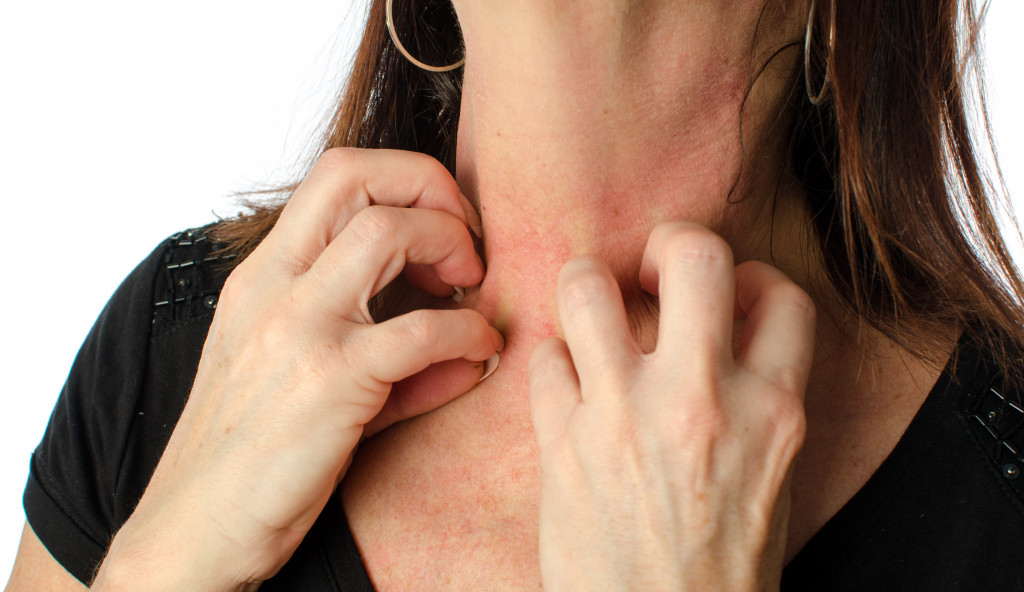Disclaimer: This website provides health information for educational purposes only and is not a substitute for professional medical advice, diagnosis, or treatment. Always seek the guidance of a qualified healthcare provider with any questions you may have.
- Eczema is a chronic condition that affects 30 million Americans, causing mental distress, sleep interference, and difficulty with daily activities.
- Olive oil, moisturizers, avoiding irritants, and medications can be used to manage eczema symptoms.
- Mental health issues such as anxiety and depression may arise from living with eczema.
- Relationships may suffer due to the physical discomfort of eczema.
- Poor sleep can worsen eczema symptoms and interfere with productivity at work.
Dealing with eczema may not seem like a big deal to some people, but it can ruin your life in many ways. Eczema is a chronic condition that causes your skin to become inflamed, itchy, and dry. This can be incredibly uncomfortable and significantly impact your daily life. Here’s what you need to know about eczema in the U.S., how it can affect your life and ways you can deal with it.
Eczema in The U.S.
One of the leading skin conditions in the United States is eczema. It affects people of all ages but is more common among children than adults. The National Eczema Association estimates that up to 30 million Americans have some form of eczema.
Effects on Your Life
Eczema can cause a variety of symptoms, and it can affect your life in various ways. Here are some of those ways:
Mental Health
Living with eczema can cause a great deal of stress, anxiety, and depression. Dealing with the constant discomfort and embarrassment can wear on your mental health. It can be difficult to feel confident and happy when your skin is constantly itchy, red, and dry. In some cases, this can lead to social isolation, as people with eczema may avoid going out in public or socializing with others due to their condition.

Sleep Interference
Eczema can make it difficult to get a good night’s sleep. The constant itchiness and discomfort can keep you up at night, and the scratching can further damage your skin. This can cause a vicious cycle of more itching and less sleep, significantly impacting your quality of life. Poor sleep can also make it harder to manage your eczema symptoms, as your body needs rest to heal.
Daily Activities
Eczema can make it difficult to do everyday activities like showering, cooking, and even typing on a computer. Moving your fingers or gripping objects can be painful when your skin is dry and cracked. You may also need to avoid swimming or exercising, which can exacerbate your eczema symptoms. This can be incredibly frustrating and limit your ability to do things you enjoy.
Relationships
Living with eczema can be challenging for both you and your loved ones. It can be difficult to maintain romantic relationships, as eczema can be seen as unattractive or uncomfortable. You may also struggle to connect with friends and family, as your condition can make socializing and spending time with others difficult. This can make you feel isolated and alone, further impacting your mental health.
Work Impact
Managing eczema can be full-time, making it difficult to focus on your job. If you are constantly dealing with skin issues and discomfort, it can be hard to concentrate on your work tasks and be productive. Maintaining a professional appearance may also be difficult, impacting your confidence and career prospects.
Dealing With Eczema
Thankfully, there are ways you can deal with and prevent eczema. Here are four effective ways.

Olive Oil
Dry skin can lead to eczema, so moisturization is essential. One of the main benefits of olive oil for the skin includes moisturization since it has natural properties that can interact with your skin to make it softer and less prone to irritation. It can also help with itchiness and inflammation, two main symptoms of eczema.
Moisturizers
A moisturizer is one of the best ways to protect your skin from eczema. Many types of moisturizers can help keep your skin hydrated, including lotions, creams, ointments, and oils. Some may be designed explicitly for eczema relief and should only be used as your doctor directs.
Avoid Irritants
Certain products can irritate your skin and trigger an eczema flare-up, so avoid using them if possible. Products like fragrances, dyes, preservatives, and harsh detergents can all irritate when applied directly to the skin or inhaled through the air.
Medication
Your doctor may prescribe medication to help treat your eczema. This can include topical ointments, oral medications, or light therapy. Following your doctor’s directions when taking any medication for your condition is essential.
Dealing with eczema can be challenging, but it doesn’t have to ruin your life. With the proper support and knowledge, you can find ways to manage your symptoms and live a happier and healthier life. If you are living with eczema, talk to your doctor about what treatments are best suited for you and how you can protect yourself from flare-ups in the future.




